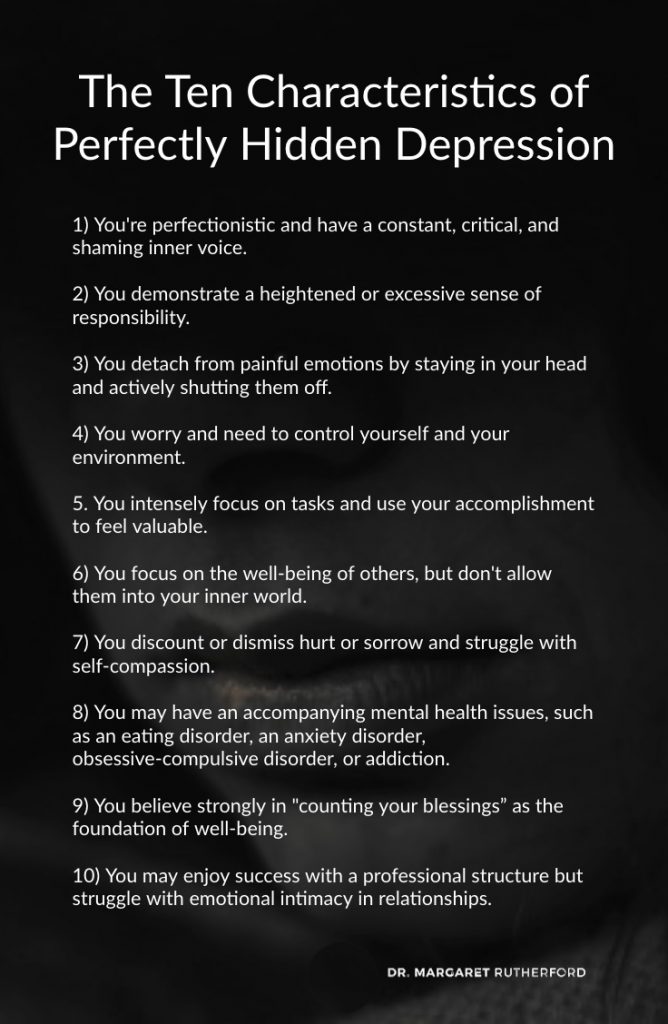
The Secret Nature of Mental Pain
Michelle Matthias
The issue of mental illness has been in the news a lot these days, and rightfully so. It’s necessary to speak about this because those who are affected are hurting in unseen places, due to the secret nature of mental pain. Mental struggles are more common than we care to believe because it’s easily masked by a smile and in our current pandemic by a mask. The point of this blog is to help in keeping the spotlight on this all too important subject that is too often ignored. This subject will be looked at from a borderline perspective and not from a severe clinical depression state.
It’s important that we get past the myth that those in mental pain are somehow always bed-ridden and non-functional. That does not always hold true because not everyone experiences depression in the same way. It’s not unusual for people to exhibit a pleasant, smiling, upbeat, functional deposition while depressed. They might be aware or only partially aware of the magnitude of their mental pain. In fact, there is a terminology for those who appear to be upbeat and happy while experiencing depression – ‘smiling depression.’
As per Rita Labeaune, Psy.D., clinical psychologist, “The hallmark of smiling depression is sadness. The smile is an attempt to hide their true feelings. A person could be experiencing sadness about a failed relationship, career challenges, or lacking what they view as a true purpose in life. The sadness might also manifest as a constant overall feeling that “something just isn’t right.”
Very often there are no hints to the outside world, which gives the impression that all is dandy. However, underneath there is pain, insecurity, fear, and in some cases, thoughts of not wanting to live.
This is a difficult subject but it’s imperative that we remove the stigma by talking about it especially because unlike severe depression, those who are still functional and smiling are more likely to go without help.
From her book ‘Perfectly Hidden Depression’, Dr. Margaret Rutherford has highlighted ten characteristics of hidden depression. While this is not meant to be a diagnostic tool, it’s interesting to see the different ways that mental pain can present itself.

Mental illness does not care about color, class, location, association, denomination, political affiliation, or family relations. If you or anyone you know might be experiencing mental struggles, help is available. It does require attention and sometimes intervention.
It’s okay to speak about it. It’s okay to pray about it. It’s not a sign of failure, instead, it shows strength. Speaking and praying about your feelings and your thoughts is freeing, it’s refusing to allow the chains of pain to win. Choose a confidant – friend or family and offload. Sharing feelings and thoughts are key elements in coping with depressive/painful thoughts. It’s like shining light into a dark space – let there be light.
And let us consider how to stir up one another to love and good works, not neglecting to meet together, as is the habit of some, but encouraging one another, and all the more as you see the Day drawing near. – Hebrews 10:24-25
Because
“Iron sharpeneth iron; so a man sharpeneth the countenance of his friend.” – Proverbs 27:17

Empowerment Coach
Michelle Matthias

“The mind is private, exposure to its depth is dependent on how we choose to share it.” – Michelle Matthias
If you like this blog, leave a comment and share it with someone else
Subscribe to our Blog

andy says:
Unfortunately mental health issues have always been taboo and especially so in the black community. With the pandemic, these issues are increasing because of imposed isolation as well as on the other side of the spectrum, being with others (family members) 24/7.
The article highlighted many characteristics of perfectly hidden depression, this is very helpful to us all.
Mental illness is more common than we’d like to acknowledge and is no different from any other ailment. There’s nothing to be ashamed about and it’s actually an indication of strength to recognize when we need a little help and to actually get that help whether from talking to a pal or a professional. No man is an island, we all need help at one point or another in our lives. We all want to be our best selves, we can’t pour from an empty pitcher. Let’s endeavor to take care of our health and our mental health is certainly a part of being healthy.
Michelle says:
Thank you for your very insightful response. You are right – No man is an island. This should to be a collective effort.
Sheryl says:
Very well said. We must always be reminded of our “completeness”…paying attention to all areas of our being. The definition of health used in the medical field says “Health is a state of complete physical, mental and social well-being and not merely the absence of disease or infirmity”.
None of us are immune to mental issues and so we must be alert, observant, and helpful to all whom we can assist.
While studying and practising in the field of Mental Health we were guided by the mantra “But for the grace of God, there goes I”.
Powerful food for thought…..
Michelle says:
Thanks for sharing the definition of health as it’s used in the medical field. That’s a sobering mantra.
Bert says:
Thanks for touching on such a much needed topic that is generally under discussed. Together we shall overcome because iron do sharpen iron. Keep up the good work.
Michelle says:
Thank you for comment. I do believe that together we shall overcome.
Mia says:
This is a really important message. Wish it was more widely known!
Michelle says:
Thank you. I do think there’s more work to be done to open up the conversation on this topic.
Sharon Croft says:
I applaud people who share their challenges with mental health with others. Shining a light on this topic that is often stigmatized is the only way more funding and access to care will become available for all. I believe that everyone should have regularly scheduled mental health check-ups much like we do for our physical health. Thank you for this article, Michelle, some of the “10 Characteristics…” were an eye-opener.
Michelle says:
Thank you for sharing such valuable perspective. Regular scheduled mental health check-up is a good idea.
Carress Brown says:
So perfectly explained and highlighted.
Michelle says:
Thank you. I’m happy you found this to be valuable.
KMckenzie says:
The quote about your mind being private and exposure to it’s depth is dependent on how we choose to share it, is such a profound one. You’re basically saying that the path to our healing rest on how much of the private mind we are willing to expose. And isn’t that the truth; God knows all things but he is always looking for us to be able to stretch forth our withered hands and not cover up and pretend, if we want to be healed. This is an eye opening discussion because I honestly did not know there was such a term as “smiling depression.” My question would be at what point do you cross the line from being hopefully optimistic because you’re counting your blessing to smiling depressed….hmmm…interesting. Thank you for sharing. I think the world that we live in is so consumed with self, yet still we are the most deficient in being aware of what is actual going on within our selves. We are consumed with every other selfie and trying to be like the next self that we have completely lost our way and then not until it’s too late we realized that we went from optimistic to smiling depressed to totally depressed. This is a good topic. I would definitely love to hear and have more discussions around this.
Michelle says:
I am humbled that my quote grabbed your attention in such a profound way. Healing sometimes is dependent on our actions and our willingness to cry out. We get so consumed with the external world that we sometimes become neglectful in caring for what truly matters to our personal health and well-being. A sure sign indicator that we have crossed the line to a more depressed state is if or when the feelings of mental pain becomes sustained and consistent. To be continued … Thank you.
Janice says:
Self Care means asking for help when you need it..
Connection and sharing experiences and feelings are some ways to build your resilience and help remove the stigma associated with mental illness..
Thanks for shedding more light on this important subject..
Michelle says:
Thanks for sharing your thoughts. As usual, your feedback is appreciated. The destigmatization of mental illness is required.
Jacqueline Powell says:
These are some comforting things to do. Thank you sister Michelle
Michelle says:
Thank you!